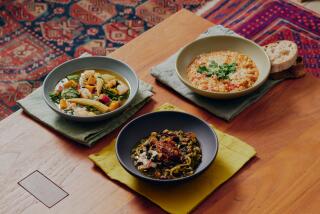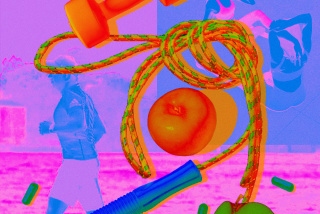Eating with an overweight person may affect what and how much you eat, study finds

The next time you think about changing your eating habits for the better, you may want to start with the person sitting across the dinner table. A new study by researchers at Cornell University suggests the size of your eating companion may affect how much and what you eat.
The study, published in the journal Appetite, looked at groups of 82 college students who were served a meal of pasta and salad. Before the meal, a female actress, who sometimes wore a prosthetic suit to make her appear 50 pounds heavier, attracted the attention of the diners.
During some of the meals, the woman wearing the prosthetic suit ate a more healthful meal of more salad than pasta, and in others ate more pasta than salad. After watching her, the other participants were asked to serve themselves salad and pasta.
The researchers found that when the actress was wearing the prosthetic suit, participants served themselves and ate 31.6% more pasta than when she wasn’t wearing the suit. There was also a 43.5% decrease in salad consumption when the actress wore the suit, even when she served herself more salad.
“This study provides evidence that the body type of an eating companion ... influences the quantity of food intake,” wrote researchers.
But instead of switching up your companions, the researchers insist there are ways to eat healthfully, no matter who you’re dining with. One strategy is to plan your meal beforehand, so that regardless of what and how much your companion is eating, you stick to your own game plan.
Sometimes when I eat a salad, I pretend it’s nachos. Follow me on Twitter @Jenn_Harris_.
More to Read
Eat your way across L.A.
Get our weekly Tasting Notes newsletter for reviews, news and more.
You may occasionally receive promotional content from the Los Angeles Times.







